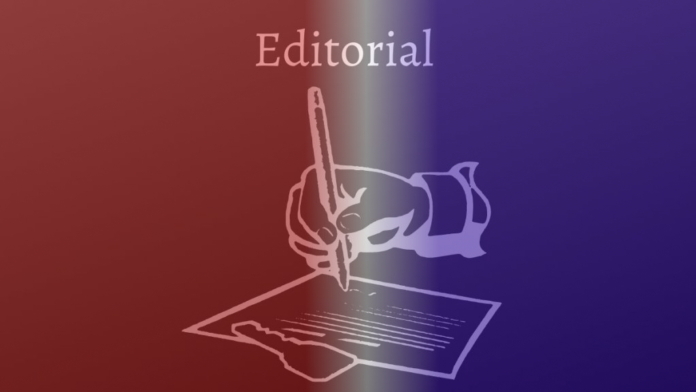The word ‘harbinger’ means an ‘omen’ or a ‘forewarning.’ It usually refers to the approach of something unpleasant or evil, a signal of impending doom. Sometimes, it can be a forecasting of a happy occurrence. For our purposes here today, we are suggesting that the toppling of many of the Antigua Barbuda Labour Party (ABLP) billboards around the country are a harbinger or forerunner of things to come for Those in High Places. This Administration is teetering on the edge of a great and ignominious fall, on account of its willful and wanton mismanagement of the country – its unresponsiveness to the plight of the people, and its exceedingly arrogant and self-serving ways. The good citizens of Antigua and Barbuda have had enough, and we are planning to push this bankrupt and worthless Administration from its pedestal, much like its grotesque, over-the-top billboards, into the dust and ash heap of history.
Classical literature is replete with harbingers of impending doom, and they serve as a reminder to the reader that we ought to pay attention to the nurturing of our better selves, because a failure to do so can result in our undoing. Think the fatal flaws of the many tragic heroes in literature and in history. The thing is that in literature, the undoing of the tragic hero is usually foretold. There is often a harbinger of his impending demise.
Consider, if you will, this passage from an analysis of Shakespeare’s MACBETH: “Throughout Macbeth, as in many of Shakespeare’s tragedies, the supernatural and the unnatural appear in grotesque form as harbingers of wickedness, moral corruption, and eventual downfall. (See the collapse of the many ABLP billboards). Here, the appearance of Banquo’s silent ghost, the reappearance of the witches, and the introduction of the goddess Hecate all symbolise the corruption of Scotland’s political and moral health. In place of the dramatisation of Macbeth’s acts of despotism, Shakespeare uses the scenes involving supernatural elements to increase the audience’s sense of foreboding and ill omen. (See the collapse of many of the ABLP billboards). When Macbeth’s political transgressions are revealed, Scotland’s dire situation immediately registers, because the transgressions of the State have been predicted by the disturbances in nature.” (See the collapse of the ABLP billboards).
Even in the Holy Scriptures, we see harbingers of imminent doom. The most famous, of course, is the recount of the story of Belshazzar’s feast where the words, “Mene, mene, tekel, upharsin” (“Though art weighed in the balance and found wanting; God has numbered the kingdom and brought it to an end.”) suddenly appear on a wall during the height of the partying. [Daniel 5:18–26] Of course, as we all know, that very night of the party (539 BC), in keeping with the written portent of misfortune, Belshazzar was killed, and his kingdom, Babylon, was destroyed by the Medes and the Persians.
Not surprisingly, the body language of Those in High Places is one of defeat. They seem to have abandoned their already feeble attempt to put ‘sugar cake’ in the thousands of potholes that plague our roads. For example, they are not bothering to repair Briggins Road, or Factory Road, from Sprugoo’s to Harney Motors, or Fort Road, from the former Barrymore Hotel down to the Fort James Beach. Their manifesto is a lacklustre picture book, featuring their unfinished initiatives, and the ninety-percent-completed UPP projects. They appear to have thrown their hands up in the air in exasperation at their utter failure to solve our water woes, and their hubris on that matter (to fix the water woes in fourteen days), appears to have evaporated. As a matter of fact, they no longer seem interested in highlighting their achievements (precious little) over the past several years, au contraire, their campaigning has been whittled down to simply asking their disillusioned Constituents, “What do you want?” Their attempt at excitement rings hollow, and nobody believes any of their contrived performances. How sad!
And there are other potentially grave issues lurking around the corner in front of this Administration. For example, the issue of the ‘wealthy investors’ coming to our shores, mainly from Cameroon by way of Nigeria, could have serious and far-reaching consequences for our fair State. So too, the Global Bank of Commerce matter. They are simmering beneath the surface . . . for now . . .
The fall of this Administration, and those in High Places, much like their billboards, reminds us of the Biblical David’s lament over Saul and Jonathan, as recorded in 2 Samuel 1:27: “The beauty of Israel is slain upon thy high places: How are the mighty fallen in the midst of the battle! O Jonathan, thou wast slain in thine high places . . . Tell it not in Gath, publish it not in the streets of Askelon.”
Gotterdammerung! (German) (Richard Wagner) – The cataclysmic fall of the gods!
We invite you to visit www.antiguaobserver.com and give us your feedback on our opinions.

